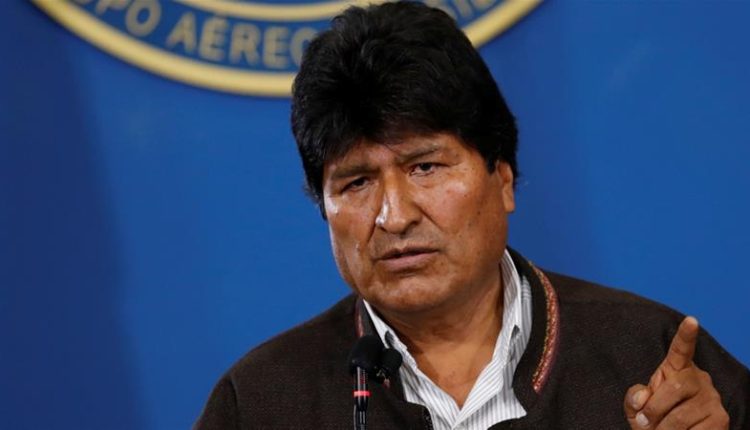
The pendulum of Latin American politics
HAVANA – Everything indicates that the recent coup d’état against Evo Morales in Bolivia is part of plans carefully woven by the United States and its allies of the Latin American right to reverse the so-called ‘progressive process’ developed in Latin America starting with the victory of Hugo Chávez in Venezuela in 1998.
Just look at the last twenty years of continental history to refute the claim that Latin America is not of the utmost interest of American governments. It is a policy that advances by inertia, often on winding roads, in correspondence with the very nature of American imperialism.
More or less disembodied coups in Honduras, Paraguay and Brazil, the suspicious conversion of Lenin Moreno in Ecuador, and electoral triumphs of the right in some countries, especially in Argentina and Chile, transformed the Latin American political map, with negative consequences for an integrationist process bidding to consolidate a greater degree of independence from the United States.
Under these conditions indigenous consultation mechanisms were weakened, the OAS regained a high degree of prominence in regional policy, persons within countries trying to consolidate the conservative movement appeared, and some governments assumed positions of absolute subordination to U.S. policy.
Against Venezuela and Nicaragua, all instruments of unconventional warfare were launched and, after a brief period of attempts to apply ‘new methods’ by Barack Obama, Cuba has been the victim of a brutal intensification of the economic blockade against it, and other forms of political aggressions.
Faced with what seemed inevitable, in most cases the European Union subordinated itself to U.S. policy and reached extremes such as recognizing the self-proclaimed Juan Guaidó presidency of Venezuela.
Although the determining factors have been basically endogenous, the influence of China and Russia in particular has moved the Latin American policy pendulum against U.S. plans. Venezuela, Nicaragua and Cuba have resisted attacks by the United States. In Mexico, the left won an overwhelming victory, regaining the country’s leadership in the region. For its part, in Argentina, progressivism defeated the neoliberal forces despite the enormous American support for the government of Mauricio Macri.
Popular revolts in Ecuador, Chile and Bolivia itself, point to a scenario where the right can only govern through repression and that always has a limited shelf-life, however brutal it may be. The other alternative will be the emergence of left-oriented governments with even more radical social agendas and frank opposition to the United States.
The problem is that the counteroffensive against the popular movement did not come from the force, but from the weakness of the United States and the Latin American right to exercise the domain they previously held, which explains their fragility. The progressive failure of these governments is a symptom of the limits of the neoliberal system and the relative deterioration of U.S. hegemony worldwide.
Paradoxically, due to objective conditioning, not without errors in the conduct of these processes, Latin American progressive governments have enhanced the development of sectors that sometimes distance themselves from their origins, to join a middle class molded from ideological patterns of neoliberalism.
Once the popular governments were overthrown, in order to satisfy the interests of these sectors without affecting the profit margins of large capital, in short, the objective of the neoliberal project, the right has no alternative but an economic agenda based on the privatization of basic services and the reduction of social programs. What Frei Betto calls the insurmountable conflict between accumulation and distribution in the neoliberal system.
The result is the exacerbation of levels of inequity that are explosive, giving rise to both popular rebellions and the emergence of neo-fascist forces, which react through repression, discrimination and social exclusion of the majority.
This is the picture we are currently observing in Latin America. Against the neoliberal right conspires the history, culture and evolution of the economic structures of Latin American countries.
Neither the oligarchy is the same, affected by capitalist globalization, nor are the popular sectors, especially characterized at this stage by the emergence of an indigenous movement, a majority of the population in several countries, which gains prominence as it integrates to the rest of the social movements and assumes nationalist positions from its recognition of ethnic diversity. Evo Morales is not an accident of history, but the reflection of the configuration of the new Latin American republics.
This seems to fulfill the 230-year-old prophecy of Tupac Katari, the Aymara leader who, after besieging La Paz for more than three months, said: “I die but will return tomorrow as millions.”

